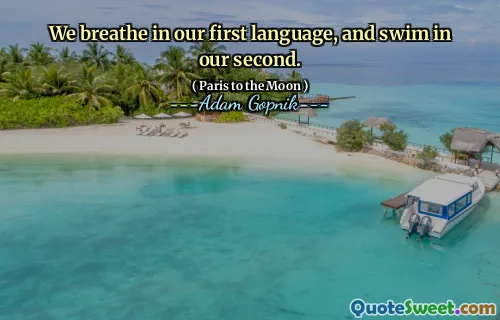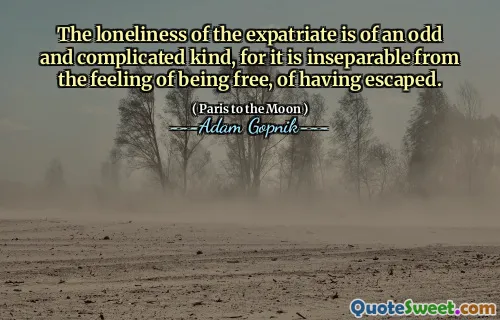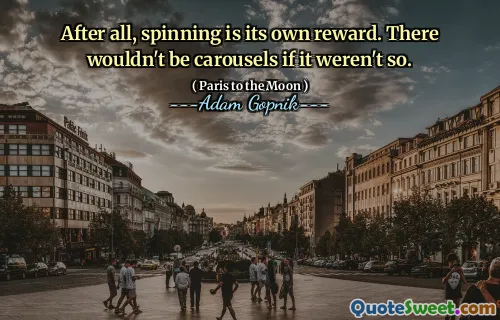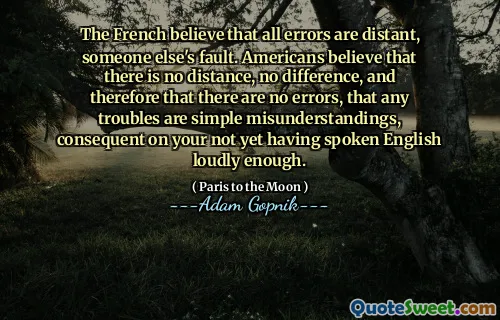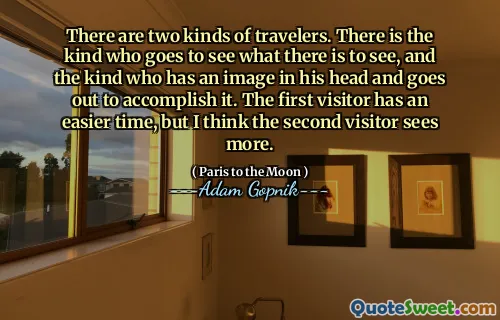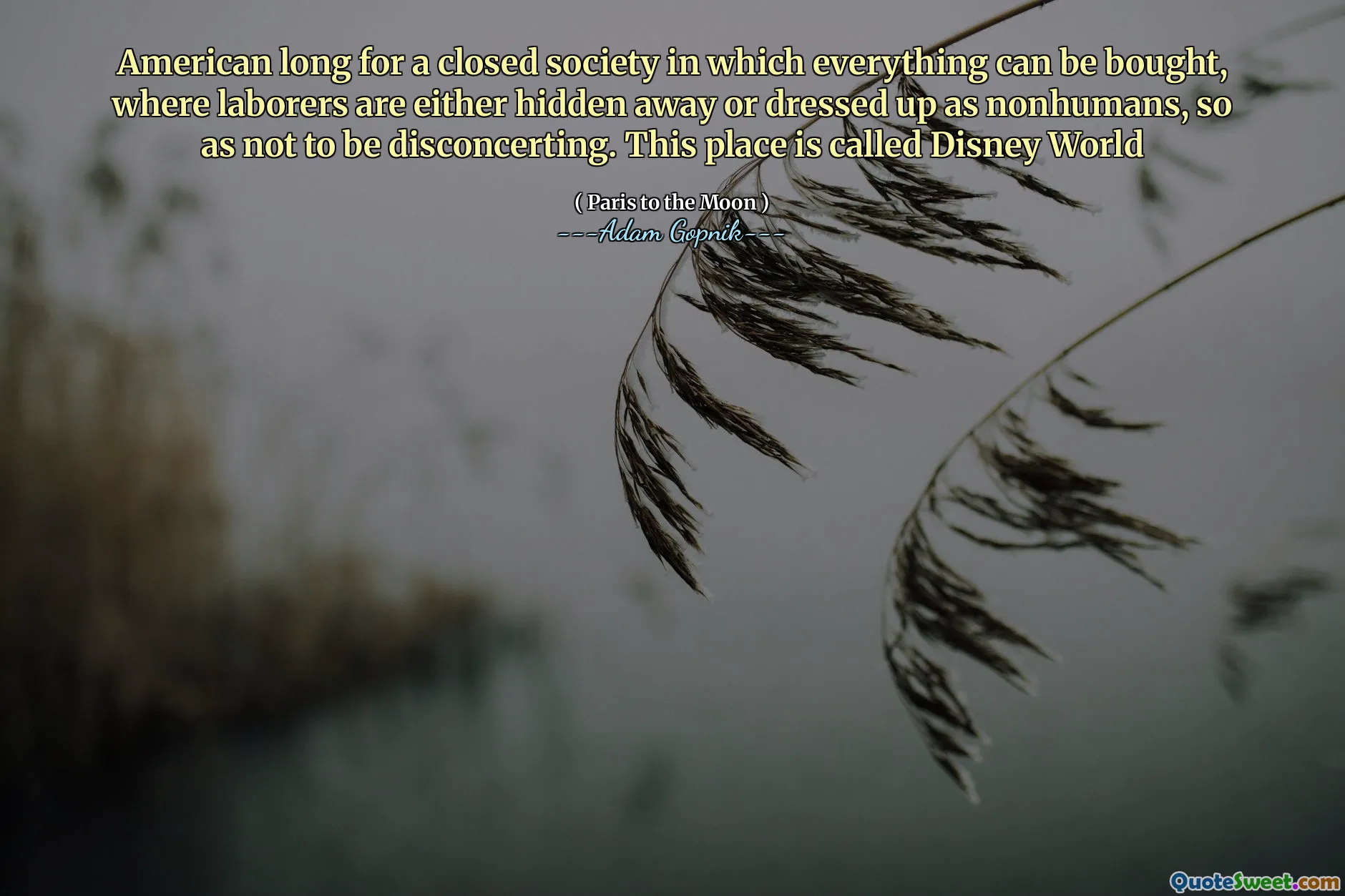
American long for a closed society in which everything can be bought, where laborers are either hidden away or dressed up as nonhumans, so as not to be disconcerting. This place is called Disney World
In "Paris to the Moon," Adam Gopnik reflects on the American desire for an idealized, closed society where commodities are easily accessible, and the realities of labor are conveniently obscured. He suggests that this longing manifests in spaces like Disney World, where everything is meticulously curated to create a seamless, enchanting experience. Here, the complexity of life is simplified, and the harsh realities of work are often concealed from guests, creating a sanitized environment.
Gopnik's critique highlights a cultural trend toward escapism, where the authentic aspects of human experience are hidden or transformed into something less unsettling. The disguised labor forces in these environments evoke a sense of discomfort when considering their existence, but the allure of such places often overshadows these ethical concerns. Ultimately, the author illustrates how Americans seek refuge in fantastical worlds that prioritize pleasure and consumption over genuine human connection and acknowledgment of labor's realities.
